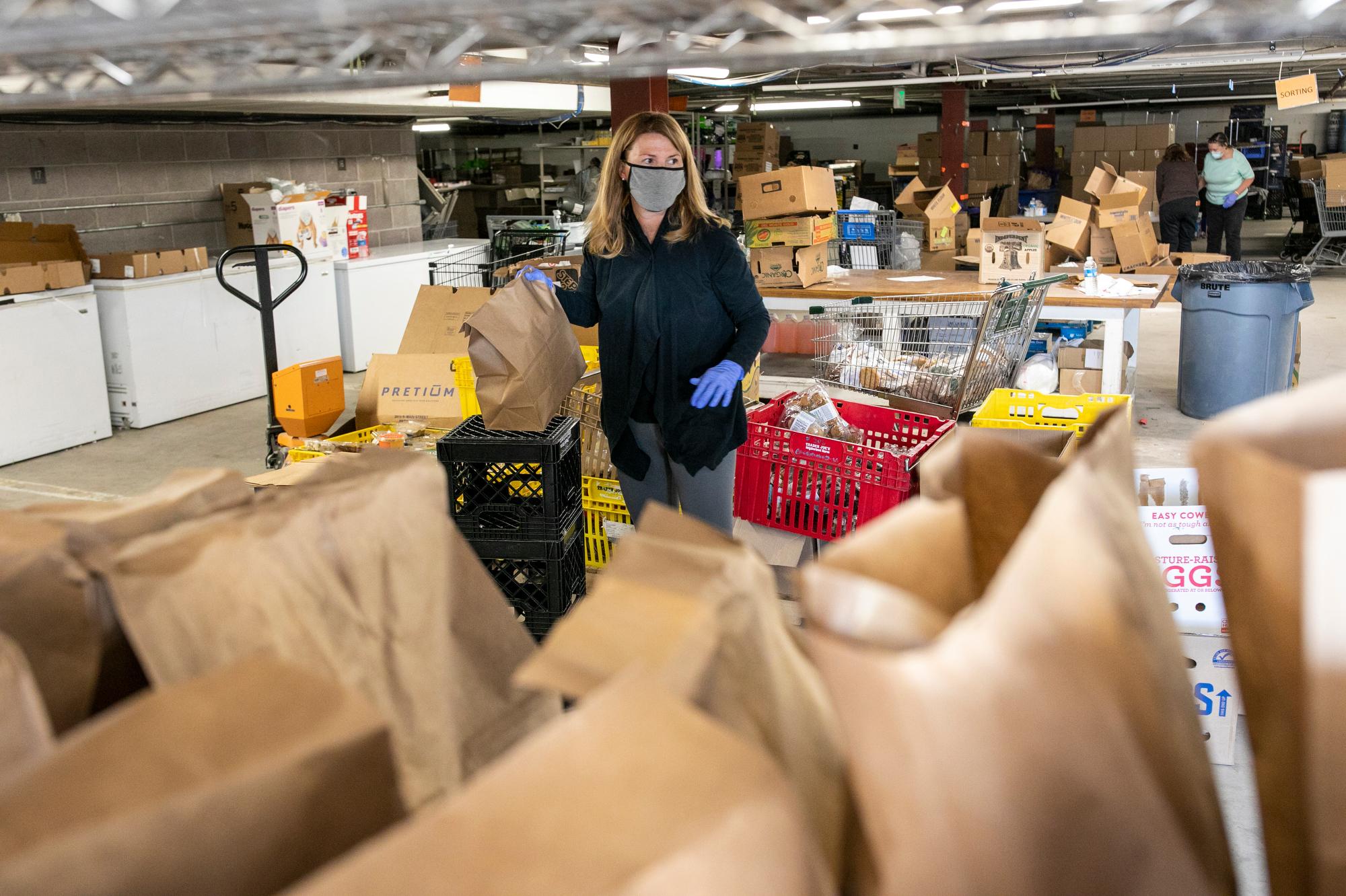
On the edge of a busy parking lot in Denver, an orderly procession of cars makes its way through a makeshift path lined by traffic cones. Each vehicle stops briefly while workers load boxes of necessities inside — there are canned goods, bread and dairy products, fresh vegetables and meats.
The groceries are free at Jewish Family Service’s Weinberg Food Pantry. It operates three days a week and in the long months since the pandemic started, business has quadrupled from 40 households per day to 160 per day, said Shelly Hines, director of community resources and stability for the agency.
“A lot are people that haven't ever been in this situation before, have worked their whole lives and were furloughed,” she said. “We’re seeing a lot of refugee and immigrant families, a lot of vulnerable working families with children. About 40 percent of the total numbers that we're seeing are children. And so lots and lots of families in our community are really food insecure at this point.”
On Friday, a woman who identified herself only as Julie stopped by for groceries.
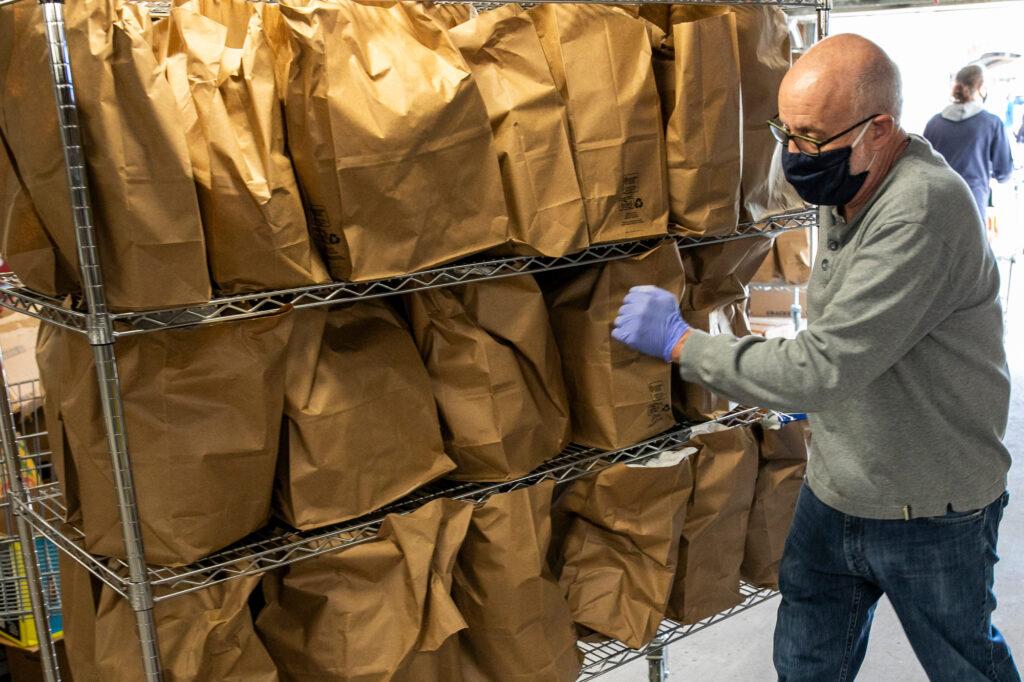
“It means that my kids have dinner and lunch,” she said “You know we’re homeschooling now. It’s a real hardship for us. This COVID has really done a number on our family.”
Julie sells business insurance. She said her hours have been cut because of the pandemic.
Wisdom Wormenor has been a regular at the pantry since business dried up at the limousine company he owns.
“There's no income coming in because of the COVID, so I'm not making anything,” he said. Jewish Family Service has also helped him periodically with rent and utility payments.
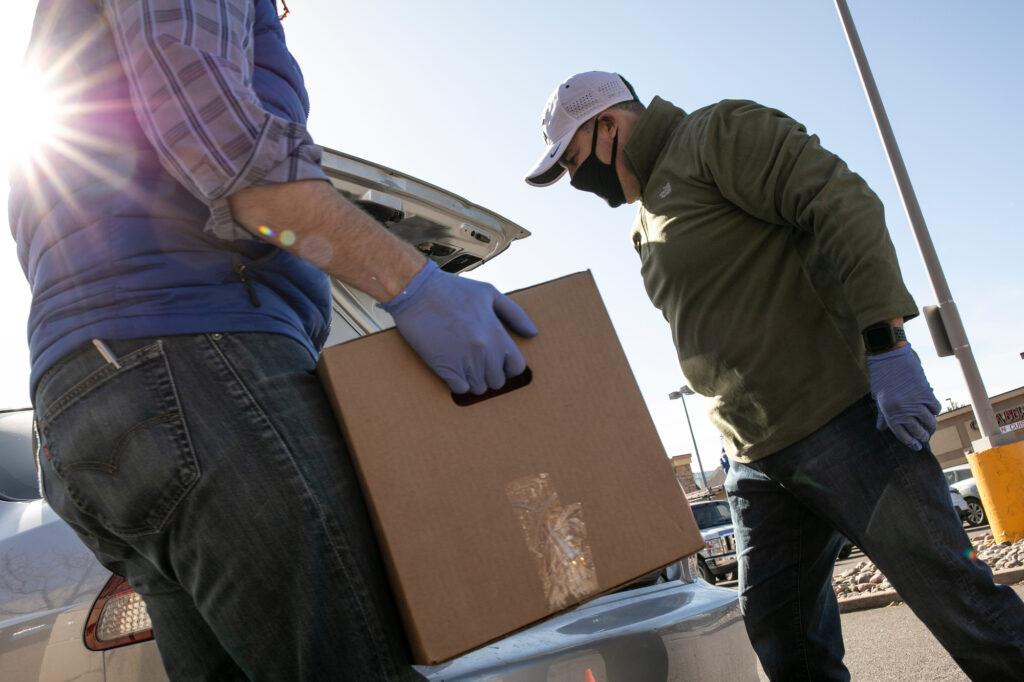
Rachel Whewell’s last day of work as a restaurant server was Thursday. She picked up groceries and pet food the next day.
“It's just really hard. It's not a position I ever thought I'd be in,” she said.
The needs, and the lines at food pantries, are pretty much the same across the state, said Kathy Underhill, who oversees food distribution for the Colorado Department of Human Services.
“Overall about 18 percent of food pantry clients have never visited a pantry before COVID hit, and that's a staggering number compared to normal,” she said.
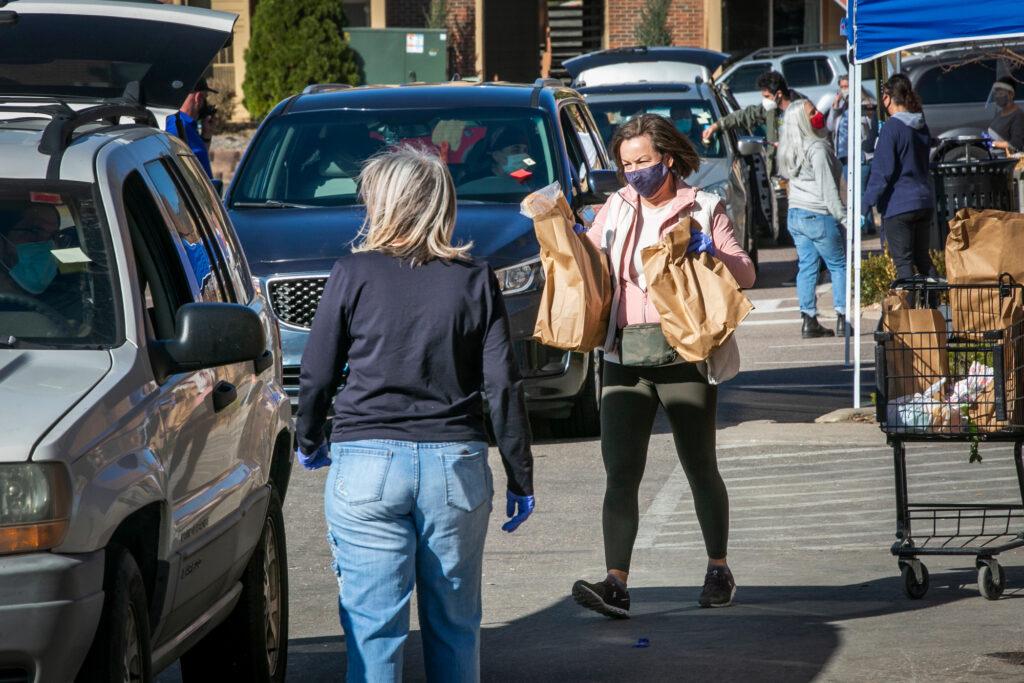
The state legislature allocated $500,000 in emergency grants to pantries last summer, Gov. Jared Polis added another $100,000 later. That’s all been spent and the legislature will consider adding more money when it meets in a special session next week, she said.
In a survey connected to those grants, about half of food pantry clients statewide said they’d had a death or serious illness in the family, almost a third said they’d lost their jobs and 21 percent said they’d lost housing, Underhill said.
“People are really being devastated by this,” Underhill said.
On Colorado’s Western Slope, Alisha Wenger heads the Community Food Bank of Grand Junction. Demand has doubled from pre-pandemic levels, forcing what was a relatively small operation to grow fast. Over the summer, Wenger rented a refrigerated truck for four months to keep produce fresh.
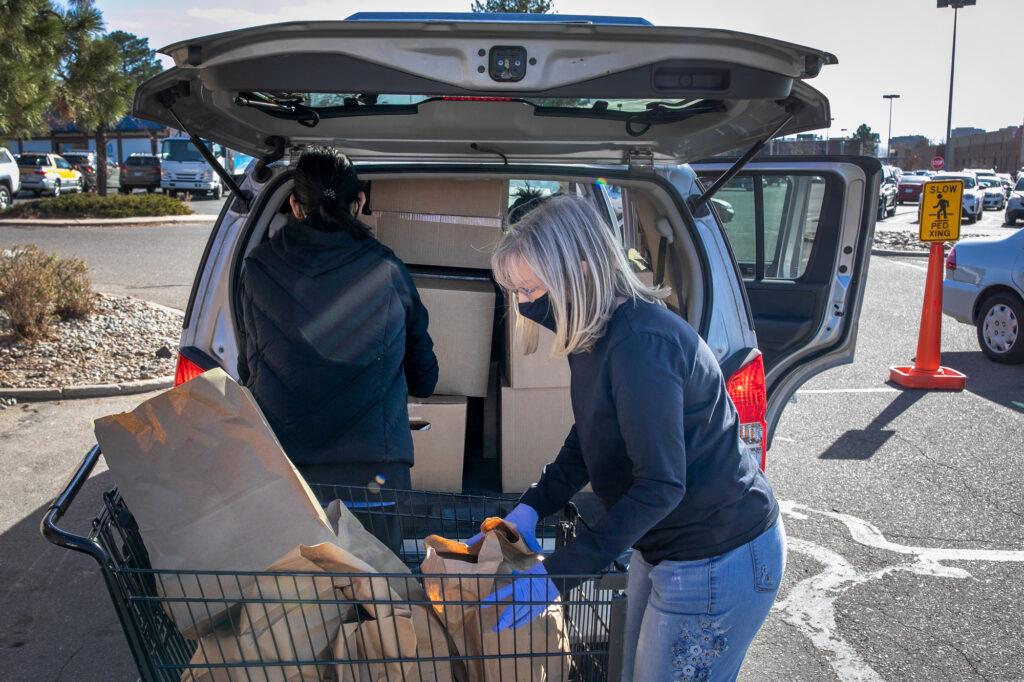
The organization has ramped up a delivery service for people who can’t leave their homes and it’s moving to a new building — with a walk-in cooler and a walk-in freezer.
When people who could afford food saw it vanish from grocery stores last spring due to supply shortages, they got a sense of what food pantry clients routinely go through, Wenger said.
“For the first time a lot of people felt what our families feel all the time, which is food insecurity … when you don’t know where your next meal is coming from,” Wenger said.
At Jewish Family Service, this week’s boxes will be loaded with the fixings for Thanksgiving dinner. In coming months, there’s new hope for vaccines that could stem the pandemic. But Underhill predicts several tough months ahead.
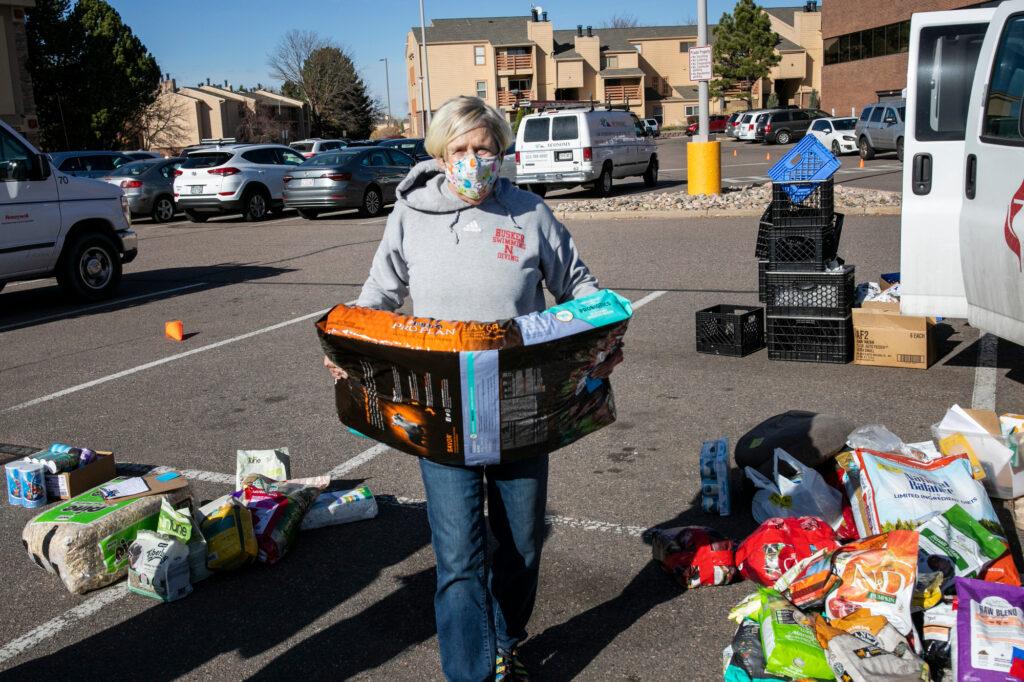
“I think it's going to be a really challenging winter, probably the most challenging winter that we've ever had related to hunger in Colorado,” Underhill said. ”I don't think we're going to run out of food. I think we might end up with fewer choices of what is stocked in food pantries, but I feel very certain that we'll have enough for everyone to be fed.”
People who have the means and want to help can contact their local food pantries, she said.
“(But) I can't stress this enough — call and find out what they need before you show up with stuff, because they have big gaps in the food availability so you don't want to show up with 10 turkeys if they just got turkeys in but they're missing another ingredient,” she said.
Many pantries also need volunteer drivers.
“We’re having more people quarantining and isolating, especially those with disabilities, older adults, those that are more vulnerable, (so) folks that want to volunteer to do home delivery of food boxes that is a huge, huge need all over the state.”









